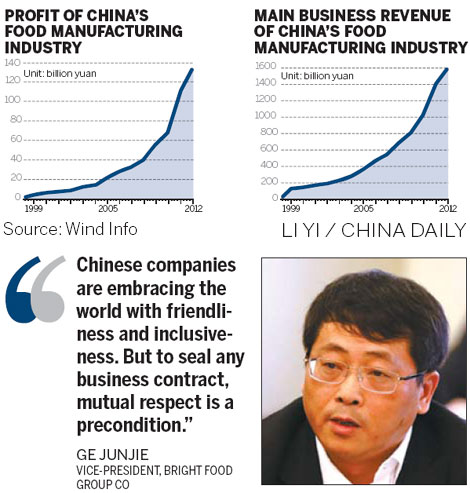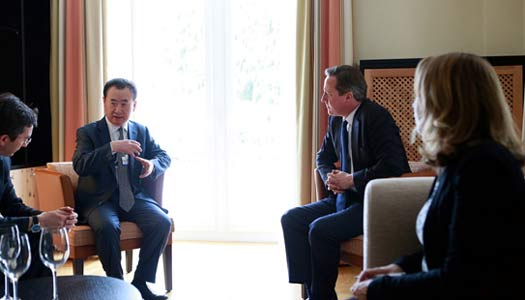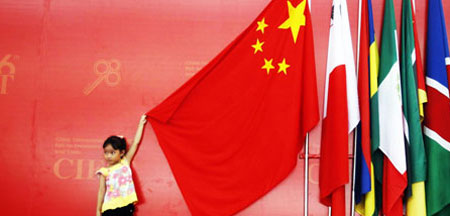Going global helps to feed aspirations
Updated: 2013-03-28 07:39Even though Ge had been pursuing the potentially lucrative deal for months, he chose to pull out after unreasonable demands were made and took the next flight from Paris to Shanghai. "The internationalization of Chinese companies should never come at the expense of unfair treatment and losing dignity," Ge said.
The story ended in a rather dramatic way. The consultant flew all the way to Shanghai to apologize to Ge and accepted every clause the two parties had earlier agreed to.
"Chinese companies are embracing the world with friendliness and inclusiveness. But to seal any business contract, mutual respect is a precondition," he told his counterpart. That pretty much explained how Ge let go several major bids including the purchase of French yogurt maker Yoplait SA and the sugar unit of CSR Ltd.
Zhang Huiming, head of the Enterprise Research Institute at Fudan University, said Bright Food's previous failures were largely attributable to its insufficient investment plans. "Companies should always use financial institutions to diversify their investment portfolio, which increases the odds of success. Bright Food must have learned a lot from its seasoned rivals in terms of acquisition plans and negotiation skills," said Zhang.
But Ge said he didn't think of those as failed projects. "Bright Food made international movements by evaluating our needs and gains. We should never sacrifice our own interests."

In fact this is a universally applied principle. When finalizing the acquisition deal with Manassen Foods Australia Pty, a branded food business, Ge recalled the warm welcome he received from the minority shareholders in Australia.
Although Ge's offer was not the highest among all the bidders, Manassen's management team appreciated Bright Food's business values and bet on the prospects offered by its distribution channels in the vast Chinese market.
Ge stressed that M&As are not the only solution to gain traction in a foreign market. Companies can choose to become strategic investors to cater to a specific need, which doesn't necessarily involve comprehensive cooperation. For instance, Bright Food may leverage Diva's distribution channels to access French wine dealers but it doesn't need to invest in heavy assets.
Business is not all about money, which is the vivid lesson Ge has learned. Going global is a steady course that Chinese companies should learn over time. They should learn to form a sound relationship with key business middlemen such as law firms, accounting agencies and banks.
Chinese companies should also fully take into account business risks including the debt ratio, political stability and social benefits.
Two "historical" moments during international negotiations have long captivated Ge. When he addressed hundreds of local employees on the topic of "Manassen's future and dream", Ge felt that Chinese people had really stood up to the world.
The second story is somewhat more sentimental. During a trip to Bordeaux, Ge met an old lady who ran a century-old vineyard.
She told Ge her great-great-grandfather started the business and today her great-great-grandson was working for the same vineyard. "Doing the same thing for several generations is a secret of success. That's what I have always desired," he said.
hewei@chinadaily.com.cn
)
- BYD exports three electric cars to Thailand
- Grid gets first jolt of residential solar power
- US now largest buyer of China's exports
- China's outbound M&As on the rise
- Tobacco control may entail price, tax rises
- Quanzhou becomes pilot financial reform zone
- New automobiles shine at Geneva Motor Show
- World's longest high-speed rail 'on track'
- Jiugui Liquor involved in plasticizer scandal again
- Accident reignites school bus safety concerns
- China to revise labor law
- Trademark registration under scrutiny
- Dinner ban takes toll on liquor firms
- CIC tables bid for London's Chiswick Park
- Property buyers eye overseas market
- Call for law to protect personal information
- China to cut train ticket prices
- Christmas business
- Solar industry to get jolt from new policies
- KFC chicken under spotlight















